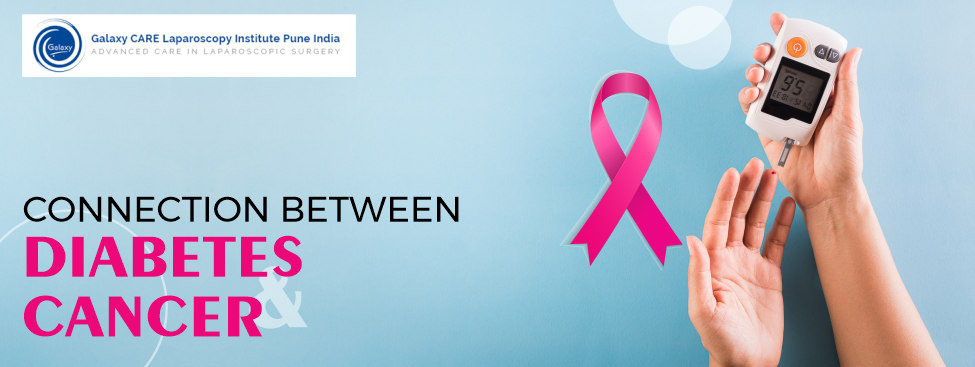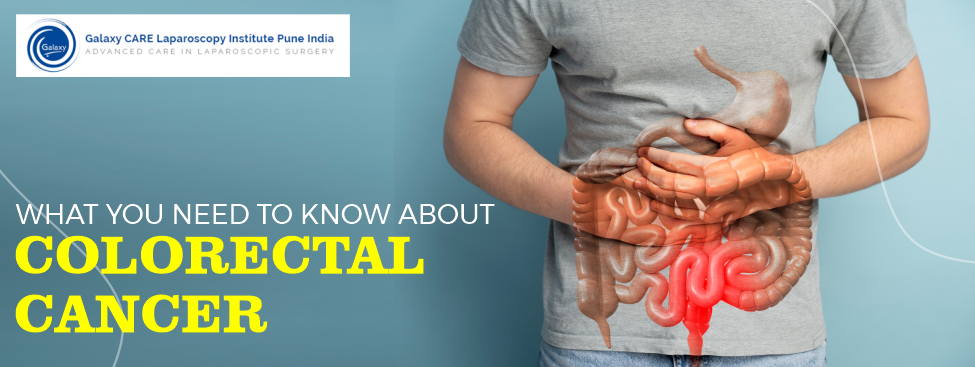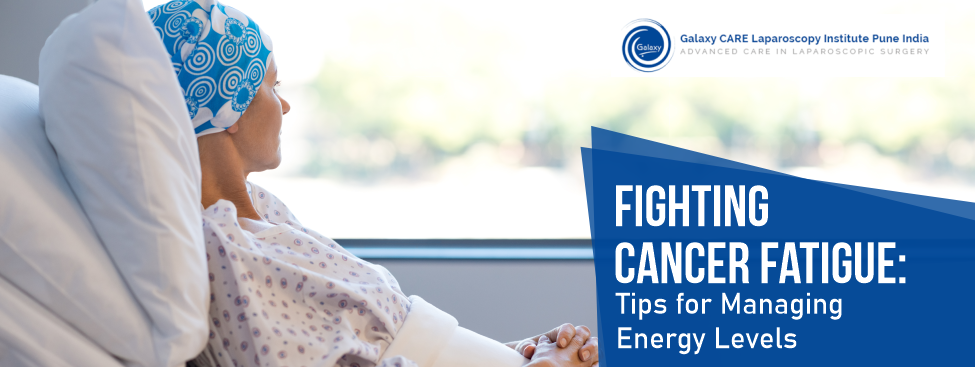
Exploring The Connection Between Diabetes And Cancer
Diabetes and Cancer are two chronic life-threatening diseases which are increasingly affecting millions of people worldwide. While they may seem unrelated on the surface, various studies over the past few decades have established links between diabetes and certain types of cancers. This blog by Galaxy Care Hospital aims to explore the biological mechanisms through which diabetes can potentially increase the risk of cancer and provide tips to manage diabetes and lower cancer risk.
We will also discuss how Galaxy Care Hospital, with its state-of-the-art facilities and team of the best Oncologists in Pune is effectively helping people in preventing, diagnosing and treating cancer. Let’s begin with understanding Diabetes first!
What is Diabetes?
Diabetes is a chronic metabolic disease characterized by high blood sugar (glucose) levels resulting from defects in insulin production or insulin action. There are mainly two types of diabetes – Type 1 diabetes develops due to the body’s failure to produce insulin. Type 2 diabetes occurs when the body becomes resistant to the effects of insulin or does not produce enough to maintain normal glucose levels. Untreated diabetes can lead to serious damage to many of the body’s systems, especially the nerves and blood vessels.
Connection between Diabetes and Cancer
Having diabetes, particularly type 2 diabetes, increases the risk of several cancers. Some key reasons for this association are:
- High blood sugar levels: High glucose in the bloodstream fuels cancer cell growth and makes the body more prone to inflammation which further increases cancer risk. One theory suggests that insulin resistance and hyperinsulinemia associated with diabetes may promote cancer cell proliferation.
- Obesity: Obesity leads to increased production of certain hormones and growth factors by the fat cells in the body. This includes estrogen, insulin, leptin, inflammatory cytokines and insulin-like growth factor-1. Sustained higher levels of these substances in the bloodstream because of excess body fat can directly or indirectly promote the growth and proliferation of cancer cells. They may also make the tumor microenvironment conducive for malignancies to develop and spread to other organs.
- Chronic inflammation: Prolonged elevated blood sugar in diabetes leads to inflammation throughout the body by increasing inflammatory markers. Chronic inflammation is linked to increased risks of cancer.
- Insulin and IGF levels: Higher insulin and insulin-like growth factor (IGF) levels linked to diabetes and obesity may stimulate cancer cell growth and block apoptosis (programmed cell death of cells).
Specifically, diabetes is correlated with elevated risks of cancers like liver, pancreas, endometrial, breast, bladder and colorectal cancers. Good control of blood sugar, weight management and lifestyle changes can help mitigate cancer risks to a great extent.
Tips to Manage Diabetes and Reduce Cancer Risks
- Maintain optimal blood sugar control through medications, diet and exercise as prescribed by your doctor. Tight glycemic control is essential.
- Lose weight if overweight/obese. Even a modest 5-10% reduction can make a significant difference.
- Follow a plant-based diet with plenty of vegetables, fruits, whole grains and legumes. Limit red meat intake.
- Stay physically active. Aim for at least 30 minutes of moderate exercise like walking, swimming, cycling daily.
- Limit alcohol intake. Drinking in moderation (1 drink/day for women and 2 drinks/day for men) if at all.
- Quit smoking and avoid secondhand smoke exposure.
- Undergo regular health checkups and screenings recommended for diabetics and your age group to diagnose cancers early.
- Manage other co-existing conditions like high blood pressure and cholesterol levels well.
- Limit processed/ packaged foods high in sugar and carbohydrates.
- Manage stress with yoga, meditation or other relaxation techniques.
- Consider vitamin D, calcium and omega-3 supplements under medical guidance.
Conclusion
In conclusion, maintaining optimal diabetes control and a healthy lifestyle can significantly lower the risks of diabetes-associated cancers. Galaxy Care Hospital, the Best Cancer Hospital in Pune, with its state-of-the-art infrastructure, cancer specialists, and comprehensive cancer care services like laparoscopic and robotic surgeries,and personalized treatment plans is well-equipped to help prevent, diagnose and treat cancer at its earliest stages.


